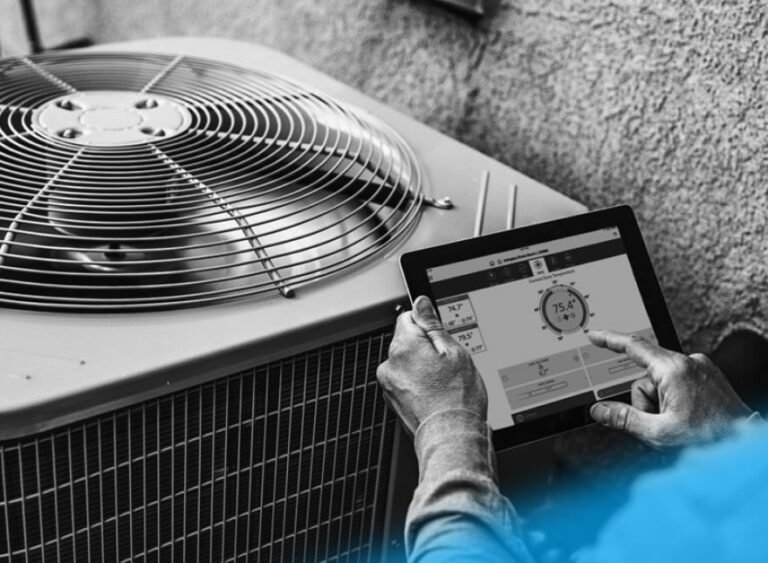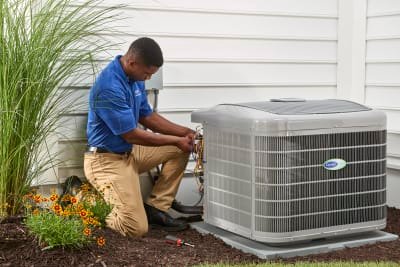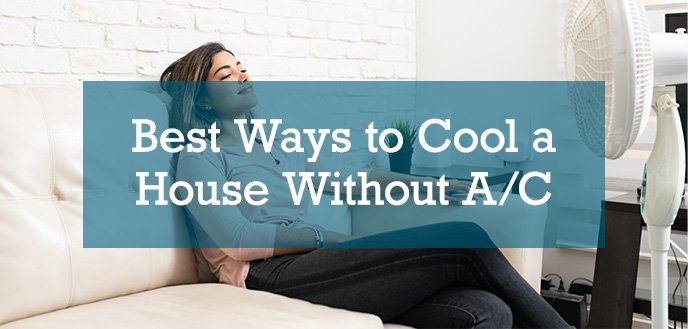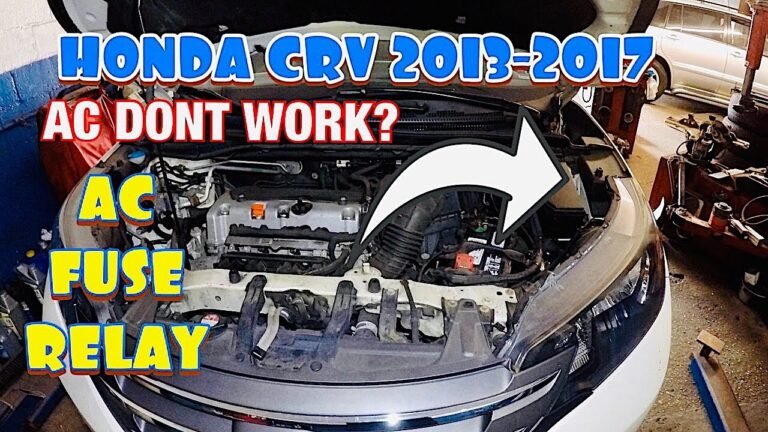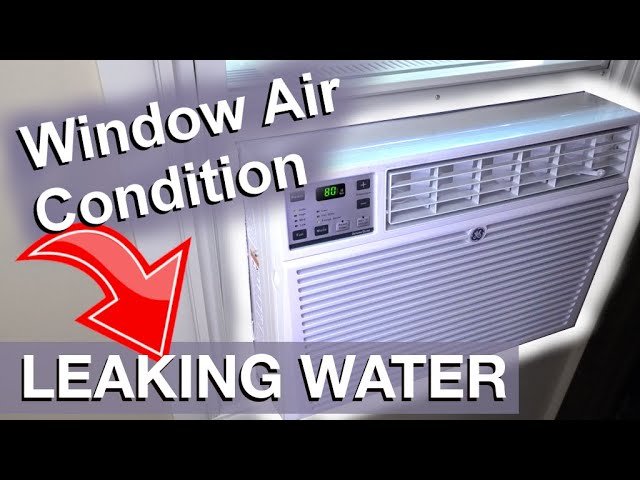What Size AC Do I Need for My Mobile Home? Get the Perfect Cooling Solution!
To determine the ideal size AC for your mobile home, it is essential to consider the square footage of your home and its insulation rating. Additionally, factors such as climate, windows, and ceiling height should be taken into account during the calculation process.
By following these guidelines, you can ensure that your mobile home is adequately cooled with the right AC size.
Factors To Consider For Choosing The Right Ac Size
|
When it comes to choosing the right AC size for your mobile home, there are several factors that you need to consider:
|
Determining The Btu Requirement For Your Mobile Home
Understanding BTU and its significanceBTU stands for British Thermal Unit and is a measure of the amount of heat energy required to raise the temperature of one pound of water by one degree Fahrenheit. In the context of air conditioning, it represents the cooling capacity of an AC unit. Determining the BTU requirement for your mobile home is crucial to ensure efficient cooling without over or under-sizing the system. BTU calculation formulaTo calculate the BTU requirement for your mobile home, you can use the following formula: BTU = (Square footage of your mobile home) x (20 for hot climates or 25 for colder climates) Examples of BTU calculation for different mobile home sizes
|
Types Of Ac Units Suitable For Mobile Homes
| Types of AC Units Suitable for Mobile Homes | |
|---|---|
| Window AC units | Window AC units are a popular choice for cooling mobile homes. They are typically easy to install and can fit into most standard-sized windows. When choosing a window AC unit, consider the BTU (British Thermal Unit) rating to ensure it is sufficient for the size of your mobile home. Keep in mind that window units can be noisy and may obstruct your view if located in a main living area window. |
| Portable AC units | Portable AC units offer flexibility as they can be moved from room to room. They usually come on wheels and include a window kit for easy installation. Look for a portable AC unit with a sufficient BTU rating for your mobile home size. Keep in mind that portable units require a window or vent for proper exhaust. |
| Ductless mini-split systems | Ductless mini-split systems are ideal for mobile homes as they do not require ductwork. They consist of an outdoor condenser unit and one or more indoor air handlers. Ductless mini-split systems offer zoned cooling, allowing you to adjust the temperature in different areas of your mobile home independently. |
| Central AC units | Central AC units are a more permanent and integrated cooling solution for mobile homes. They require ductwork installation and may be more expensive upfront. However, central AC units provide efficient cooling throughout the entire mobile home and offer the ability to control the temperature in each room. |
Window Ac Units
When it comes to selecting a window AC unit for your mobile home, it’s important to consider the BTU requirement for different room sizes. The BTU (British Thermal Unit) measures the cooling capacity of an air conditioner and determines how effectively it can cool a given space.
For smaller rooms, such as bedrooms or offices, a window AC unit with a lower BTU rating, typically around 5,000-8,000 BTU, may be sufficient. These units are more energy-efficient and cost-effective for smaller spaces.
However, for larger rooms or open-concept living areas, you may need a window AC unit with a higher BTU rating, such as 10,000-15,000 BTU. This will ensure proper cooling throughout the space and prevent the unit from overworking or struggling to cool the room.
Other factors to consider when selecting a window AC unit include the size of the window opening, energy efficiency ratings, noise levels, and additional features such as programmable timers or remote controls.
By carefully considering the BTU requirement for different room sizes and other factors, you can find the perfect window AC unit for your mobile home.
Portable Ac Units
BTU requirement for different room sizes
When it comes to selecting a portable AC unit for your mobile home, it’s essential to consider the required BTU based on the room size. The BTU (British Thermal Unit) indicates the cooling capacity of an air conditioner.
A small room, such as a bedroom or office, typically requires around 5,000 to 8,000 BTUs. A medium-sized room, like a living room or kitchen, may need 8,000 to 12,000 BTUs. Larger spaces, such as a combined living and dining area or multiple connected rooms, might require 12,000 to 18,000 BTUs.
Portable AC units offer several advantages. They are easy to install, require no permanent installation, and can be moved around as per your needs. However, they have a lower cooling capacity compared to central AC systems and may not be suitable for cooling an entire mobile home.
It’s important to note that these BTU ranges are general guidelines, and factors like insulation, ceiling height, and sunlight exposure can affect the cooling requirements. Consider consulting with a HVAC professional to determine the best size and type of AC unit for your mobile home.
Ductless Mini-Split Systems
Ductless mini-split systems are a great choice for mobile homes due to their many advantages. One of the main considerations when choosing an AC unit for your mobile home is the BTU requirement based on the room size. Here is a general guideline for BTU requirements based on room sizes:
- Small room (up to 300 sq ft): 6,000-9,000 BTU
- Medium room (300-600 sq ft): 9,000-12,000 BTU
- Large room (600-1,000 sq ft): 12,000-18,000 BTU
- Extra large room (1,000+ sq ft): 18,000+ BTU
It’s important to choose an AC unit with the appropriate BTU rating to ensure efficient cooling and energy savings. Ductless mini-split systems offer the flexibility to install multiple indoor units connected to a single outdoor unit, allowing for customized cooling in different areas of your mobile home. These systems are also easy to install and provide quiet operation, making them a popular choice for mobile homes. Consider consulting with a professional HVAC technician to determine the exact BTU requirement for your mobile home based on its specific layout and insulation.
Central Ac Units
When choosing a central AC unit for your mobile home, there are several important factors to consider. One of these factors is the BTU requirement for your specific mobile home size. It’s crucial to select an AC unit with the correct BTU rating to ensure effective cooling and energy efficiency.
For smaller mobile homes, such as single-wide units, a BTU rating between 12,000 and 18,000 BTUs is typically sufficient. Medium-sized mobile homes, such as double-wide units, may require a BTU rating between 18,000 and 24,000 BTUs. Larger mobile homes may need an AC unit with a BTU rating of 24,000 or more.
It’s also essential to consider the insulation levels in your mobile home, the climate of your area, and the number of windows and doors when determining the appropriate BTU rating. Consulting a professional HVAC technician can help ensure you choose the right size AC unit for your mobile home.
Consulting A Professional For Accurate Ac Sizing
Consulting a professional for accurate AC sizing is crucial when determining the right size AC unit for your mobile home. Many factors need to be considered, and the expertise of an HVAC contractor can help ensure that the AC system meets your specific needs.
The importance of professional guidance cannot be overstated. HVAC contractors have the knowledge and experience to accurately assess the cooling requirements of your mobile home. They will take into account the size and layout of your home, as well as factors such as insulation, windows, and climate conditions. This detailed analysis ensures that the AC unit is neither oversized nor undersized, which can lead to efficiency issues and discomfort.
There are several benefits of seeking expert advice. First, it saves you time and effort as you don’t have to do all the calculations and research yourself. Second, it reduces the risk of making costly mistakes. HVAC contractors are familiar with the latest technology and can recommend energy-efficient options that will save you money in the long run. Finally, by finding reliable HVAC contractors, you can trust that the installation will be done correctly and that you will get a system that performs optimally.
“` Note: The above HTML code is only for the given paragraph. The code does not include any CSS or other HTML elements.
Credit: www.nytimes.com
Frequently Asked Questions Of What Size Ac Do I Need For My Mobile Home
What Size Central Ac Do I Need For A Mobile Home?
To determine the size of the central AC needed for your mobile home, calculate the square footage of the space and consult an HVAC professional. Avoid oversizing the unit as it can be costlier. Ductless mini-split systems are a popular choice for mobile homes due to their compact size and efficiency.
How Many Btu Should A Mobile Home Have?
A mobile home should have a BTU (British Thermal Unit) that is appropriate for its size and heating needs. It is recommended to consult with an HVAC professional to determine the exact BTU requirement for your mobile home.
What Ac Is Best For Mobile Home?
Ductless mini-split AC units are the best option for mobile homes as they don’t require ductwork. They have a compact footprint and are easy to install.
What Size Ac Is In A Double Wide Mobile Home?
The size of the AC in a double wide mobile home can vary. It is best to use a mobile air conditioning sizing calculator to determine the appropriate BTU for your specific mobile home. Ductless mini-splits are often a preferred choice for mobile homes due to their compact size and easy installation.
Conclusion
To determine the right size AC for your mobile home, it’s important to consider factors such as the square footage, insulation, and climate. Oversizing or undersizing can result in inefficient cooling and increased energy costs. Consult a professional HVAC contractor who can help you accurately calculate the BTU requirements for your mobile home.
Remember, a properly sized AC will provide optimal comfort and energy efficiency for your mobile home.


